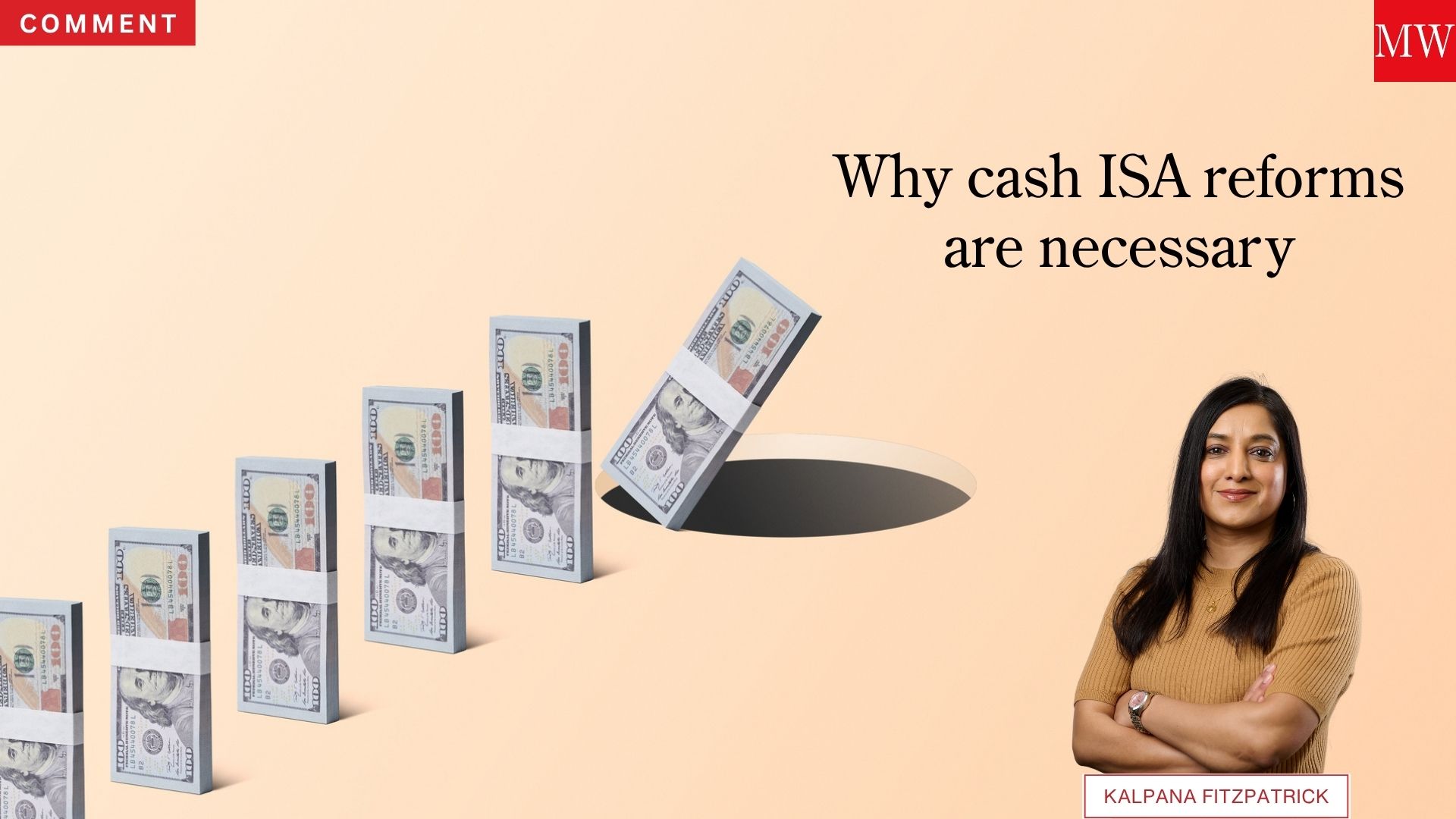The investing fear: why cash ISA reforms are necessary
Reeves indicates cash ISA reforms are still on the horizon in her Mansion House speech as she makes the case for more savers to invest. Could cash ISA reforms make it easier for savers to switch?


Get the latest financial news, insights and expert analysis from our award-winning MoneyWeek team, to help you understand what really matters when it comes to your finances.
You are now subscribed
Your newsletter sign-up was successful
Want to add more newsletters?

Twice daily
MoneyWeek
Get the latest financial news, insights and expert analysis from our award-winning MoneyWeek team, to help you understand what really matters when it comes to your finances.

Four times a week
Look After My Bills
Sign up to our free money-saving newsletter, filled with the latest news and expert advice to help you find the best tips and deals for managing your bills. Start saving today!
For too long, people have been made to fear investing. It’s time to stop the fearmongering.
We’ve all heard the warnings: ‘it’s too risky’, ‘you’ll lose your money’, ‘crypto is better’. And then there are people who just ask me ‘will it make me rich quick?’
The answer to the last question is no - sorry. As for the other comments, they are simply wrong and out of context.
MoneyWeek
Subscribe to MoneyWeek today and get your first six magazine issues absolutely FREE

Sign up to Money Morning
Don't miss the latest investment and personal finances news, market analysis, plus money-saving tips with our free twice-daily newsletter
Don't miss the latest investment and personal finances news, market analysis, plus money-saving tips with our free twice-daily newsletter
It comes as no surprise however that this is how investing is viewed. Britain has become a nation obsessed with saving pennies, spending hours chasing petty cash or being made to feel anxious about finances.
I love a frugal attitude, but I also prefer to be smart with time and money.
I fully support chancellor Rachel Reeves’ push to encourage savers to invest. While Reeves may have delayed any decision over the cash ISA, her Mansion House speech implied that some sort of ISA reforms could be on the way. The Leeds Reforms, announced this week, will also help and I’m pleased there will be a campaign to help savers decide for themselves whether investing is right for them.
To get there, we do perhaps need some cash ISA reform. It doens't have to be a cut to the tax-free allowance. Instead, making stocks and shares as easily accessible and making a single ISA which combines both could help.
Who needs financial education?
We’ve heard a lot about introducing financial education in schools - and yes, money skills are essential and it should be a topic at school. I’m waiting for the government to yet mention the need to introduce this into the curriculum from primary age.
But for now, school-age education will not fix the faltering economy and neither will it help encourage savers to shift their long-term holdings from cash into investment products, such as the stocks and shares ISA.
Real education is needed. People who hold tremendous power in influencing consumers’ financial decisions are fuelling fear and anxiety to the point where savers are unable to make the right decision for themselves.
It wasn't too long ago I saw a piece in a national paper from a senior figure telling readers ‘cash is king’. But sadly, cash really isn't king when it comes to growing your money for your future.
I've also seen pundits on TV describe investing in stocks and shares ISAs as ‘a risky-based investment’, with the implication being that investing is only a good thing for young people. But, the message is surely about knowing what risk is, taking the right level of age-based risk, and investing accordingly. It’s not just for ‘young’ people in their twenties!
By the way, it is worth noting that if you save into a pension you are investing.
Yes, you can lose money in investing, but the fact is, most people are already losing money on cash savings due to inflation.
With investing, over the long term, most people tend to do better.
How much money can you make with investing?
I don’t think it is possible to put a figure on investment returns, not in the same way as you can with cash interest rates.
There are years when investors could face a loss and other years they could see strong returns - but if you are consistent for many years, you will benefit from something known as pound cost averaging.
The government said yesterday in its Leeds Reform announcement: “According to some industry estimates, more than 29 million adults across the UK have cash sitting in a low-interest rate account offering around 1% - while the average return for stocks and shares over the last 10 years is around 9%.
“If those savers invested £2,000 today, they could have £12,000 in 20 years’ time. This compares to £2,700 if they held this money in a cash account offering 1.5% at the current interest rate, making them over £9,000 better off.”
Nice numbers and they are not impossible to achieve, though it is worth understanding that past performance is no guarantee of future performance.
There is no promise of guaranteed returns when you invest, but if you can build a strategy where you have some cash set aside for everyday costs, unexpected costs and short-term goals, plus money in investments for the future, then you could be onto a winning plan when it comes to building wealth.
If you are looking to get started with investing, do take a look at my book - Invest Now: The simple Guide to Boosting your Finances. We also have a beginners guide to help you start investing.
And if you think you may need financial advice, here’s what you need to know about seeing a financial adviser.
Get the latest financial news, insights and expert analysis from our award-winning MoneyWeek team, to help you understand what really matters when it comes to your finances.
Kalpana is an award-winning journalist with extensive experience in financial journalism. She is also the author of Invest Now: The Simple Guide to Boosting Your Finances (Heligo) and children's money book Get to Know Money (DK Books).
Her work includes writing for a number of media outlets, from national papers, magazines to books.
She has written for national papers and well-known women’s lifestyle and luxury titles. She was finance editor for Cosmopolitan, Good Housekeeping, Red and Prima.
She started her career at the Financial Times group, covering pensions and investments.
As a money expert, Kalpana is a regular guest on TV and radio – appearances include BBC One’s Morning Live, ITV’s Eat Well, Save Well, Sky News and more. She was also the resident money expert for the BBC Money 101 podcast .
Kalpana writes a monthly money column for Ideal Home and a weekly one for Woman magazine, alongside a monthly 'Ask Kalpana' column for Woman magazine.
Kalpana also often speaks at events. She is passionate about helping people be better with their money; her particular passion is to educate more people about getting started with investing the right way and promoting financial education.
-
 Should you buy an active ETF?
Should you buy an active ETF?ETFs are often mischaracterised as passive products, but they can be a convenient way to add active management to your portfolio
-
 Power up your pension before 5 April – easy ways to save before the tax year end
Power up your pension before 5 April – easy ways to save before the tax year endWith the end of the tax year looming, pension savers currently have a window to review and maximise what’s going into their retirement funds – we look at how
